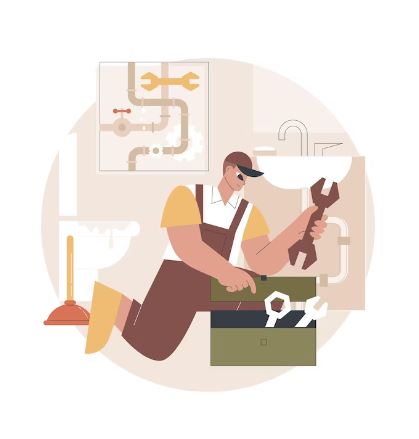The 10 Highest Paying Trade Jobs in Canada in 2023
Due to low birth rates and early retirement, Canada’s labor force decreases annually. This is why Canada hopes to welcome 465 thousand immigrants in the year 2023. By extending invitations to people from all over the world to live and work in Canada, the nation’s economy can continue to expand and maintain its status as a global power.
Due to its robust economy, Canada can afford to pay its tradespeople high wages as an incentive to maintain trade industries. Check to see if your job is on this list of the highest-paying jobs in Canada in 2023, and begin planning your relocation to a country that values your hard work and skills.
There are over 300 skilled trades available across the nation, so there is a good chance that you will find a long-lasting, well-paying job. Some specialized occupations pay more than others. Skilled trades are a burgeoning field that allows individuals who wish to avoid office work to engage in manual labor.

Canada’s Highest Paying Professions
When it comes to finding the highest-paying trade jobs in Canada, a variety of lucrative opportunities exist.
These professions provide skilled professionals with excellent earning potential and rewarding careers.
According to data from Talent.com, the average salaries for these trades are competitive and enticing to Canadian job seekers seeking high-paying positions. Let’s investigate some of the highest paying occupations and their average salaries.
Technician, Elevator (NOC Code: 72406
Annual Mean Wage: 74,100 Canadian Dollars
The installation, maintenance, and repair of elevators and escalators are the responsibilities of elevator mechanics. They use complex systems and specialized equipment to ensure the safe and efficient operation of vertical transportation systems.

Technician, Powerline Code: 22310
Annual Mean Wage: 84,708 Canadian Dollars
Powerline technicians are responsible for installing, maintaining, and repairing high-voltage transmission lines as part of their work with electrical power systems. They play an essential role in ensuring the safety and dependability of power distribution networks.
Steamfitter-Pipefitter (NOC Code: 72301)
Annual Mean Wage: 79,780 Canadian Dollars
Pipefitters and steamfitters install, maintain, and repair piping systems used for heating, cooling, and industrial processes. They use a variety of pipes, fittings, and valves to ensure that these systems function properly.

Heavy Duty Equipment Technician, Occupational Classification: 72401
Annual Mean Wage: 72,150 Canadian Dollars
Technicians of heavy-duty equipment specialize in the maintenance and repair of large machinery used in industries such as construction, mining, and forestry. They identify and repair mechanical, electrical, and hydraulic issues to maintain the equipment’s optimal performance.
Industrial Electrician (NOC Code: 72201)
Annual Mean Wage: 68,473 Canadian Dollars
Industrial electricians install, repair, and maintain industrial electrical systems. They work with complex machinery, motors, control systems, and electrical panels to ensure proper equipment operation and compliance with safety regulations.

Welder NOC Code: 72106
Annual Mean Wage: 95,235 Canadian Dollars
Welders are skilled tradespeople who use various welding techniques to join together various metal components. They work with materials such as steel, aluminum, and stainless steel, and are in demand in construction, manufacturing, and automotive industries.
Plumber NOC Code: 72300
Annual Mean Wage: 101,376 Canadian Dollars
Plumbers are specialists in the installation, maintenance, and repair of plumbing systems. They ensure water, drainage, and gas flow in residential, commercial, and industrial buildings by working with pipes, fixtures, and appliances.

TheMillwright Occupational Classification code is 72400
Annual Mean Wage: 91,584 Canadian Dollars
Those who work as millwrights or industrial mechanics must be able to adapt to changing environments. You could operate, install, replace, and repair machinery in a factory or plant setting. Your job description will include reading project blueprints and troubleshooting equipment such as pumps and electrical systems.
Bricklayer/Mason (NOC Code: 72320)
Annual Mean Wage: $76 281 CAD
Masons and bricklayers specialize in constructing and repairing structures with bricks, stones, and other materials. They are skilled in masonry techniques, ensuring that buildings are constructed and restored with precision and care.

Refrigeration and Air Conditioning Mechanic: 72402
Annual Mean Wage: $80,495 Canadian
Refrigeration and air conditioning mechanics install, maintain, and fix refrigeration and air conditioning systems. They ensure efficient operation and climate control in residential, commercial, and industrial settings by working with a variety of equipment, including air conditioners, refrigerators, and HVAC systems.
When searching for the highest-paying trade jobs in Canada, a number of lucrative opportunities are available.
These professions provide skilled professionals with excellent earning potential and rewarding careers. It is important to note, however, that average wages may vary across Canadian provinces and regions. Salary levels can be affected by regional demand, the cost of living, and industry-specific factors. It is recommended to research and consider specific provincial wage data when investigating these high-paying occupations in different regions of the country.
- Take this into account when applying for jobs in Canada.
If you’re searching for the best-paying trade jobs in Canada, you’ll find a variety of opportunities with excellent earning potential. The highest paying occupations in Canada include elevator mechanics, powerline technicians, and industrial electricians.
These occupations offer lucrative opportunities for professionals seeking well-paying jobs in Canada. Consider these in-demand occupations that offer some of the highest salaries in the country if you’re curious about the most lucrative profession.
Work in Canada in one of the highest-paying trades for Canadian tradespeople.
For individuals interested in working in one of the highest-paying trades, there are a number of ways to work as a tradesperson in Canada. The Temporary Foreign Worker Program (TFWP) and the Federal Skilled Trades Program (FSTP) are two popular programs.
The TFWP permits Canadian employers to hire foreign workers to fill temporary skill gaps. This program allows individuals with a job offer in a high-demand occupation to apply for a work permit.

The FSTP is a permanent immigration program :
Designed for skilled tradespeople who wish to become permanent residents of Canada. It necessitates meeting particular requirements and demonstrating competence in the chosen trade.
Program for Temporary Foreign Workers (TFWP) Requirements
Offer of Employment A valid job offer from a Canadian employer is required.
Employer must obtain a positive Labour Market Impact Assessment (LMIA) from Employment and Social Development Canada (ESDC) indicating the need to hire a foreign worker.
Qualifications
Must possess the necessary qualifications, skills, and experience for the particular profession or trade.
Language Competence
Depending on the trade or profession, applicants may be required to demonstrate English or French proficiency.
Prior to entering Canada, work permit applicants must apply for and obtain a valid work permit.
Proof of Financial Resources Applicants may be required to demonstrate that they have sufficient funds to support themselves and their dependents for the duration of their stay in Canada.
Examining Your Health
Applicants may be required to undergo a medical exam to ensure they meet the required health standards.
Admissibility
The applicants must satisfy admissibility requirements, including background and security checks.
Federal Skilled Trades Program (FSTP) Requirements
Skilled Trade
The applicant must have a qualifying skilled trade occupation as defined by the National Occupational Classification (NOC) system.
Work Background
Must have a minimum of two years of full-time (or equivalent part-time) experience in a skilled trade within the last five years.
Job Offer or Qualifications Document
Either a valid job offer for at least one year in Canada OR a certificate of qualification issued by a provincial or territorial authority in Canada is required.
Proficiency in Language
Applicants must demonstrate proficiency in English or French by taking a recognized language exam (e.g., IELTS, CELPIP, or TEF).
Applicants must demonstrate that they have sufficient funds to support themselves and their families in Canada.
Admissibility
Applicants must satisfy admissibility requirements, such as health and security screenings.
Certifications
In addition to work visas, certifications are essential for pursuing a career in one of Canada’s highest-paying professions. The Red Seal endorsement is a certification with a high level of recognition.
The Red Seal endorsement, also known as the Interprovincial Standards Red Seal Program, is a nationally recognized credential that verifies the skills and competence of Canadian tradespeople. It indicates that a person has met the industry’s national standards and is permitted to work in their designated trade in any Canadian province or territory. Possessing a Red Seal endorsement can increase job opportunities and earnings potential for Canadian tradespeople
Why Work as a Trade Worker in Canada?
Canada is an enticing option for tradespeople seeking rewarding careers. Its high pay and high quality of life have made it a desirable location for skilled professionals in a variety of fields.
Here are a few reasons why working as a tradesperson in Canada can be an attractive option:
High Wages
The high pay associated with these professions is a major draw for trade workers in Canada. Numerous occupations, including elevator mechanics, powerline technicians, and industrial electricians, are among the highest-paying in the nation. Individuals and their families can enjoy a comfortable standard of living and financial security with these average wages.
Employment Safety and Demand
Trade professionals are in high demand throughout Canada. The nation’s expanding infrastructure projects, construction industry, and industrial sectors generate a consistent need for skilled tradespeople. Moreover, Canada is experiencing a shortage of qualified tradespeople, resulting in excellent job security and long-term career prospects for those with the required skills and experience.
- Red Seal Certification Through the Red Seal program, Canada recognizes and values the expertise of tradespeople.
- The Red Seal endorsement is a nationally recognized credential that verifies a tradesperson’s skills and knowledge.
- Possessing a Red Seal designation increases employability and enables tradespeople to practice their trade in multiple provinces and territories, thereby increasing flexibility and opportunities.
How does the Red Seal Program work?
A national certification program in Canada, the Red Seal Program is also known as the Interprovincial Standards Red Seal Program. It allows tradespeople with valid certification from one province or territory to practice their trade in other provinces and territories across the country.
The Red Seal endorsement indicates that the tradesperson meets national industry standards and is qualified to practice their trade across provincial and territorial borders.

The first step towards moving to Canada is to get an assessment of your specific situation. Call us today at +1 604 358-5763 for an assessment to see if you are eligible to move to Canada, or fill out our online assessment form.
Whatsapp: +1 604.358.5763
ONLINE ASSESSMENT
FAQ:
What jobs will be in demand in 2024 Canada?
The most booming careers in Canada for 2024 are teachers, chefs, sales representatives, marketing managers, auditors, construction managers, software developers, and registered nurses.
What is the occupation shortage in Canada?
Among the most affected are the healthcare, construction, manufacturing, and food service industries. Healthcare. The labour shortage has hit the healthcare sector particularly hard, with a significant demand for skilled healthcare professionals that remains unmet. … Construction. … Manufacturing. … Food Service.
Is there a skilled trade shortage in Canada?
Today, the skilled trades and technology labour shortage is already delaying important projects, with many Canadian builders pushing out timelines for critical infrastructure ventures as they scramble to fill key skilled trades roles.
What trade pays the most in Canada?
Highest-paying trade jobs in Canada Truck Driver. NOC CODE 7511. Average Annual Salary $140,352. … Plumbers. NOC CODE 7251. Average Annual Salary: $101,376. … Welder. NOC CODE 7201. … Electrician. NOC CODE 7241. … Millwright. NOC CODE 7311. … Bricklayer. NOC CODE 7281. … Sheet Metal Worker. NOC CODE 7233. … Carpenter. NOC CODE 7204.
What is the processing time for the federal skilled trades program?
Most complete applications are processed within six months.
What language requirements do I need to meet for the Federal Skilled Trades Program (FSTP)?
You need to take an English and/or French test by a third party language tester that has been designated by IRCC. You need to meet the following requirements at a minimum on your test(s): at least a CLB 5 (English) or a NCLC 5 (French) for speaking and listening at least a CLB 4 (English) or a NCLC 4 (French) for reading and writing If you receive an invitation to apply for permanent residence, your test results can not be older than two years old on the day you submit your permanent residence application.








